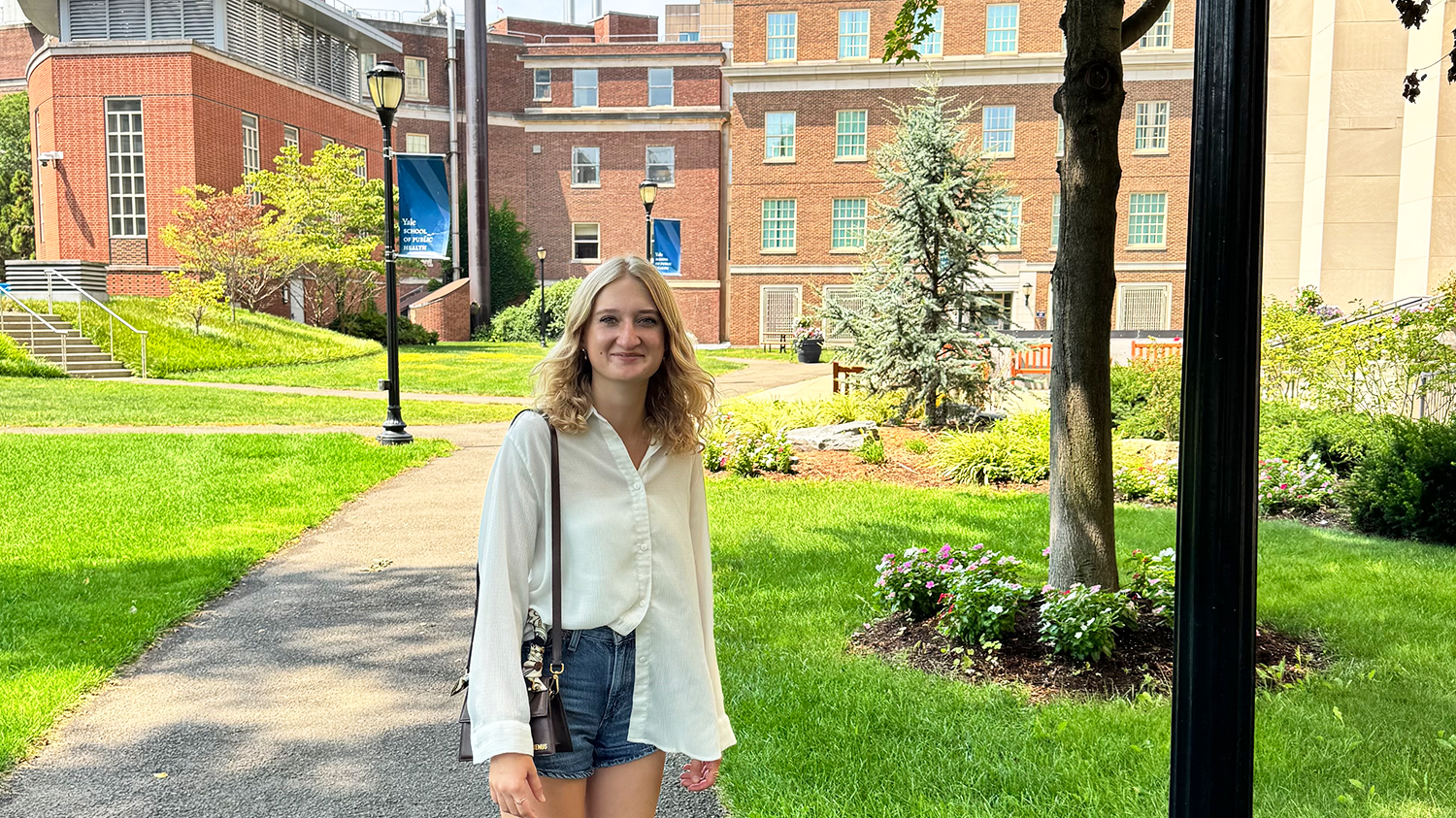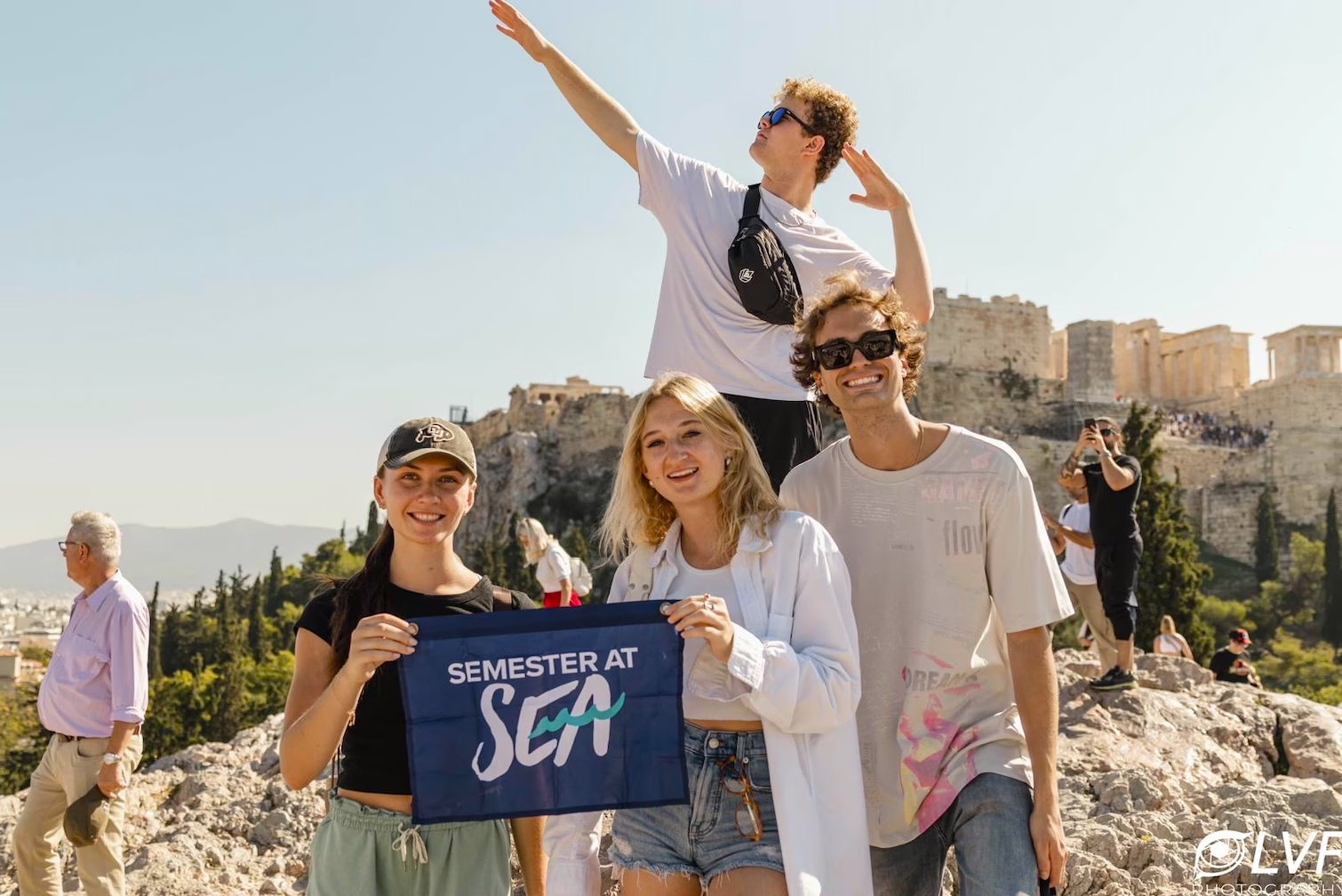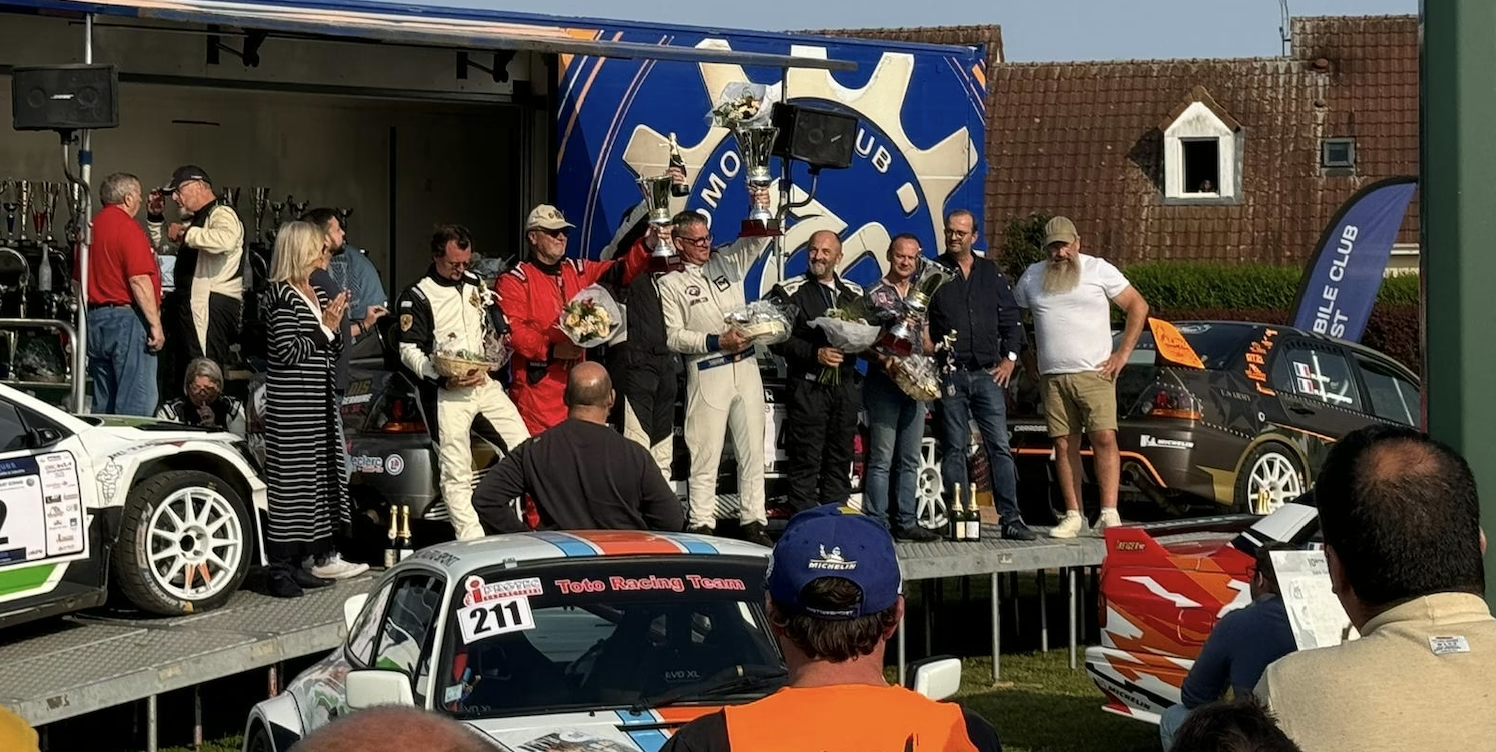Pursuing Her Passions: Business Grad Anaïs Lohier Turns to Biological Data at Yale

Anais Lohier poses for a photo at the Yale School of Public Health. The 2025 Cal Poly graduate is pursuing a master's degree in bioinformatics at Yale. (Photo courtesy of Anais Lohier)
During her three years at Cal Poly, Anaïs Lohier pursued several rewarding experiences beyond the classroom, studying at sea on a ship, serving as a mentor for the Women in Business club and volunteering at the SLO Food Bank.
In addition to her degree in business administration, she also earned minors in biology and French, the latter as way to stay connected to her roots.
“Both of my parents are French and immigrated to the U.S. shortly before I was born, and I grew up speaking French at home,” she said. “My extended family, including my uncles and grandparents, are still in Europe, so I try to visit every summer to stay connected. Beyond language, I’ve also turned to French literature to deepen my appreciation for the culture and stay connected to that part of my identity.”
After graduating from Cal Poly this June, the Bay Area native is currently in New Haven, Connecticut, where she plans to pursue a master’s degree in bioinformatics from Yale University. Bioinformatics is a relatively new discipline that combines skills and technologies from computer science and biology to better understand and interpret biological data.
“As I was finishing my degree at Cal Poly, I knew I wanted to further my education,” she said. “My two main interests were biology, through my minor, and quantitative analysis, through my concentration, and I began looking for a way to bring them together. That’s when I discovered bioinformatics, and as I read through the curriculum, I found myself excited about every course. What drew me in even more was realizing how the field could be applied to help people, whether through precision medicine or public health, which confirmed it was the right direction for me.”
We asked her about her time at Cal Poly, her plans for the future, and a vintage car race in France, Rallye Régional de Saint-Germain-la-Campagne, which is dedicated to her grandfather, Jacques Courageux.
You spent some time on a ship for the Semester at Sea program. What was your most memorable experience from that?

During her Semester at Sea, Anaïs Lohier and other students visited the Acropolis in Greece. (Photo courtesy of Anaïs Lohier)
I have a favorite memory from every stop: Barcelona’s Sagrada Familia, Malta’s Medina, escaping monkeys in Gibraltar, Malaysia’s Batu Caves, Vietnam’s floating markets, Mauritius’s natural wonders, Thailand’s temples, and so many more.
But my favorite country to visit was South Africa, where the hospitality stood out, along with unforgettable experiences, like hiking Table Mountain, trying to spot a leopard on safari, and sharing meals and stories in townships filled with music and laughter. What made the entire journey truly unforgettable were the open-minded people always ready for an adventure.
Is Semester at Sea like an extended cruise with classes?
People sometimes compare Semester at Sea to “The Suite Life on Deck” (TVshow), which isn’t too far off. The program lasted about three months, during which we sailed between countries and were free to explore each stop for anywhere between one and five days.
Once back on board, the ship shifted into a floating campus, where we took classes each day while traveling to the next destination. We also lived alongside our professors and their families, including “ship kids,” which made it feel like a close-knit community.
You graduated from Cal Poly in three years. What made you want to do that – and what do you think about that experience?
I hadn’t originally set out to graduate in three years. After returning from Semester at Sea my sophomore year, I was eager for a new goal to keep me motivated. I realized that between the community college classes I had taken in high school and my AP credits, I had accumulated enough units to finish early.
Once I discovered that, I embraced the challenge, and although it would have been fun to graduate alongside many of my friends, it became an exciting, demanding, and deeply rewarding accomplishment that made for a fulfilling conclusion to my time at Cal Poly.
You were involved in the Student Managed Portfolio project. What did you learn most from that?
The Student Managed Portfolio gave me hands-on experience in making investment decisions with real capital, which taught me to balance data-driven analysis with sound judgment. From Professor (Cyrus) Ramezani, I learned the value of connections, listening to others’ stories and recognizing that everyone has something to teach you. More than anything, the experience reinforced the importance of collaboration, adaptability, and making decisions with both confidence and accountability.
How did Women in Business help you succeed?
Women in Business is made up of powerful and driven young women who showed me the importance of networking and how to position myself in the workplace. Through the club, I learned practical skills, like building a strong resume, preparing for interviews, writing cover letters, and developing my LinkedIn. In my second year, I also served as a mentor to three younger women, which helped me grow as a leader and reinforced my motivation to support other women in pursuing their goals.
You’ve done a lot of volunteer work. Why is that important to you?
My middle school principal once told a story about a boy throwing washed-up starfish back into the ocean after a storm. Thousands had washed up on the beach, and when someone told him he couldn’t possibly make a difference, the boy threw one back into the ocean and replied, “I made a difference to that one.”
That story shaped how I view volunteer work: You may not be able to help everyone, but you can still make a meaningful difference close to you. I began volunteering in middle school and have continued ever since, because I believe in staying grateful for what I have and giving back where I can.

Anaïs Lohier volunteers with a vintage car race in France that is dedicated to her grandfather, Jacques Courageux. (Photo courtesy of Anaïs Lohier)
What is your involvement with Rallye de Saint Germain-la-Campagne?
My grandparents retired in Saint-Germain-la-Campagne, a small town in Normandy, where my grandfather, a vintage car racing enthusiast, volunteered each year at the local rally. After he passed in 2015, the mayor dedicated the race to his name, and my family took over organizing the track, logistics, and trophy ceremony. I now help with the setup and organizing the ceremony, and it continues today as a tribute to him and a community tradition.
Is bioinformatics as different from business as it sounds, or are there similarities?
At first glance, bioinformatics and business may seem very different, but there are clear similarities. Business taught me fundamental skills, like networking, building connections, and finding opportunities, skills that carry over to any field. Another common thread is data: Analyzing and interpreting data is central to both business and bioinformatics, as well as most other disciplines today.
The biggest difference is simply the biology foundation and technical knowledge.
How will Yale be different for you?
I think Yale will feel as different for me as Cal Poly did at first. In terms of education, this next step is about narrowing in on what I find most interesting, while personally I know that change always teaches me a lot about myself. It will also mean adjusting to life on the East Coast and meeting new people, which I see as an exciting opportunity for growth and discovery.
What is your dream job?
I see my career as an exploration. I want to try different things, narrow down my interests through education, and see what opportunities arise in the workplace. Right now, I’m especially interested in areas like precision medicine and genetics, but I’m keeping an open mind as I figure out where I can make the biggest impact.
Your support can help students explore opportunities beyond the classroom that will give them an edge after graduation.
